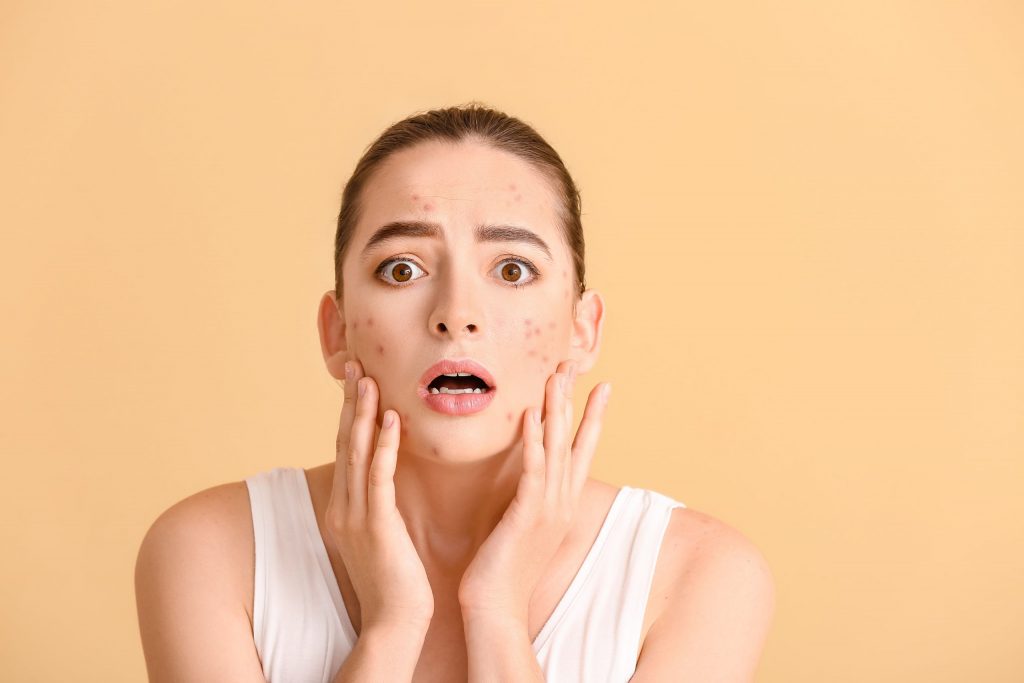How Stress Affects Your Skin: What You Need To Know

Mental stress seriously affects skin condition and causes different physical symptoms. Stress hormones like cortisol, which may set off inflammatory reactions, are released by the body of a person under stress. Short term effects of this might include acne outbreaks, rosacea flare-ups, and more oil production which would produce dull, unhealthy skin. These negative consequences show themselves when the body tries to regulate stress, therefore depriving skin health of nutrients.
Long-term stress may cause more chronic disorders like early aging, psoriasis, and eczema. Long-term stress may sometimes lead to a breakdown of skin barrier function, increasing irritant and infection susceptibility. Moreover, stress may aggravate skin disorders by fostering poor diet, insufficient skincare, and sleep deprivation—bad habits. Knowing this relationship between mental stress and skin condition emphasizes the need of properly controlling stress for general health.
Stress-Induced Skin Conditions
Stress has major influence on skin condition; it commonly aggravates common disorders such psoriasis, hives, acne, and eczema. Stress causes the body to produce chemicals like cortisol, which could increase oil output in the skin. Acne outbreaks result from this extra oil clogging pores.
Eczema, distinguished by irritated and itchy skin, may intensify under stress as it kicks off inflammatory responses causing flare-ups. Stress may weaken the skin’s barrier capacity, therefore raising its susceptibility to allergens and irritants.
Stress may aggravate psoriasis, an inflammatory condition defined by red, scaly skin lesions. Psychological stress may start immunological processes that cause inflammation and increased skin cell turnover, therefore exacerbating symptoms.
Often linked with stress as well are hives, often called urticaria. Emotional stress may produce histamines in the skin, which produces itchy welts.
The Effect of Cortisol: The Stress Hormone Affecting Skin
Stress starts the fight-or- flight reaction of the body, which raises cortisol production—also known as the stress hormone. Higher cortisol levels stimulate the sebaceous glands, hence increasing oil output on the skin. This additional oil may plug pores, therefore creating an environment ideal for the growth of acne.
Apart from more oil production, cortisol causes inflammation. High cortisol levels aggravate the inflammatory reaction of the body, which results in skin redness and edema. This inflammation could worsen previously existing skin conditions like eczema or acne, therefore compromising the skin’s capacity for healing and preservation of natural beauty.
Moreover, the mix of inflammation and too much oil causes dullness as the surface of the skin is inundated with pollutants. Maintaining healthy, bright skin may be difficult amid this cycle of stress, cortisol generation, and associated effects on skin. Managing stress in many ways—such as exercise, mindfulness, or skincare routines—helps control cortisol levels and encourages a clearer, better complexion to fight these effects.
Stress and Skin Aging: Accelerating the Aging Process
Especially affecting the structural proteins of the skin, collagen and elastin, persistent stress speeds up the aging process. These proteins help to maintain the firmness and suppleness of skin. When someone is under prolonged stress, the body generates more cortisol, a hormone that lowers its ability to create collagen and elastin.
Rising cortisol levels cause their catabolic actions to break down these essential proteins, which results in outward indicators of aging such fine lines, wrinkles, and sagging skin. Lack of enough collagen and elastin causes the skin to lose its capacity to heal after stretching, hence lowering elasticity. Moreover, stress may cause bad lifestyle choices that aggravate skin aging like insufficient sleep, lack of exercise, and poor diet.
Apart from physical changes, long-term stress may induce inflammation and other skin disorders, therefore aggravating an aged look. The combined effects of stress on the skin emphasize the need of controlling it in order to preserve a young skin and enhance general skin condition. Understanding the effects of stress may enable people to approach skin preservation and self-care actively.
Managing Stress for Healthier Skin
Maintaining good, clean skin requires effective management of stress. Breakouts, dullness, and other skin problems may all result from high stress. These are some smart techniques to reduce anxiety and improve skin condition.
One very effective approach for lowering anxiety is meditation. Even a few minutes of mindfulness every day may help to relax the mind, reduce cortisol levels, and enhance general skin condition.
Also very important is regular exercise. Endorphins produced by physical exercise may help to improve mood and reduce stress. Exercise also improves blood flow, therefore supplying more nutrients to the skin.
Including a steady skincare regimen helps to counteract stress even more. To calm the skin, cleanse, hydrate, and apply products such aloe vera or chamomile with relaxing elements.
Make sure you drink enough water and keep up a balanced diet high in antioxidants. These techniques assist internal, from the inside out skin health. These stress management strategies help one to promote a better complexion and lessen the obvious affects of stress on the skin.

Conclusion
Improving skin health depends mostly on lowering stress as high stress may cause problems like inflammation, acne, and irritability. Mental health and skin wellbeing are clearly related; when people give stress management first priority via mindfulness, exercise, or self-care, they not only enhance their emotional well-being but also help to produce a clearer, better complexion. This emphasizes the need of reaching long-term skin healthiness by means of mental health treatment along with appropriate skincare practices. Readers should be urged to explore further the area of “health and beauty” blogs, where they may find smart analysis, advice, and techniques to balance their mental and skincare health, thereby promoting a fantastic glow from the inside out.





